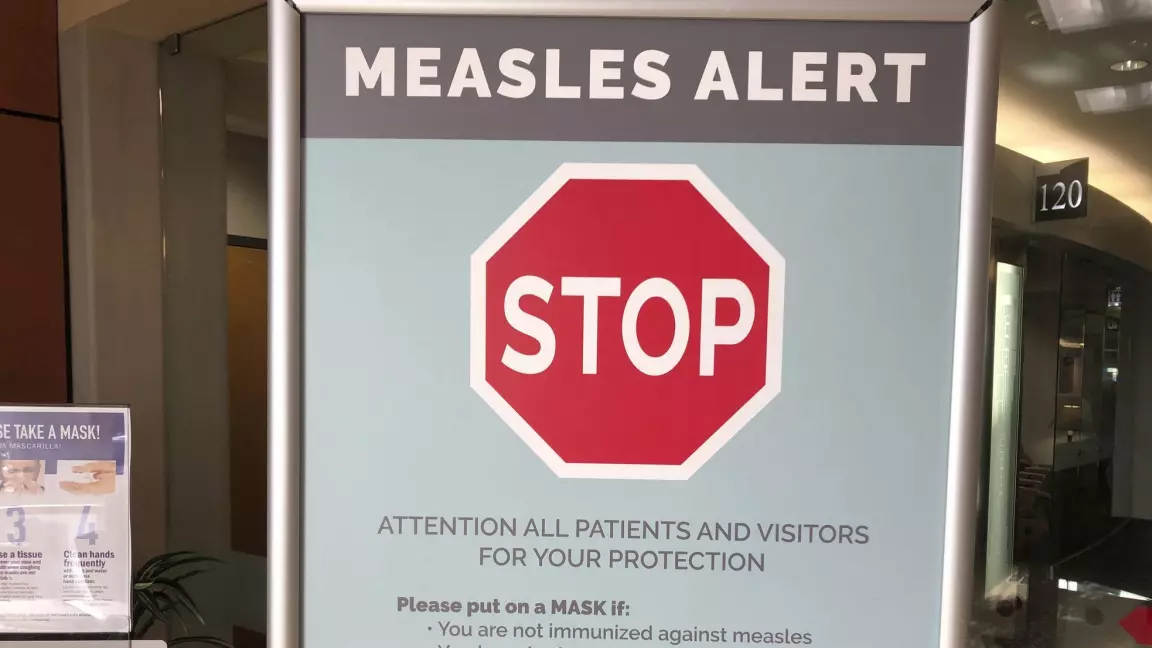Article content
Alberta is finalizing plans for rolling out new bivalent COVID-19 vaccine booster shots, which target multiple strains of the coronavirus.

Dr. Jia Hu said having more targeted vaccines should generate a better immune response and more protection against Omicron infection
Alberta is finalizing plans for rolling out new bivalent COVID-19 vaccine booster shots, which target multiple strains of the coronavirus.
The province says it’s reviewing the early September Health Canada approval of Moderna’s updated vaccine.
But one Alberta vaccine advocacy group is questioning why the province hasn’t yet announced details of its plans for the new vaccine, when provinces including Ontario, British Columbia and Saskatchewan have started their bookings.
“The question is, what’s the advantage of waiting?” said Sarah Mackey with Vaccine Hunters Alberta.
“What do they expect to review that they don’t expect that the Health Canada review process and the (National Advisory Committee on Immunization) review process caught?”
In a statement to Postmedia, Alberta Health said availability of the bivalent vaccine will be subject to the province’s allocation of federal government supply. Public Health Canada data on vaccine distribution says Alberta had received 32,300 doses of the bivalent shots as of Sept. 8.
The Moderna bivalent vaccine booster shot is the first to be approved in Canada. It targets the previously prevalent strain of the virus and the Omicron variant BA.1, which strained Alberta’s health-care system during a wave of infections last winter.
A Pfizer bivalent vaccine targeting the Omicron subvariants BA.4 and BA.5, which are dominant in Alberta, is available in the United States, with an application also submitted to Health Canada.



Having more targeted vaccines should generate a better immune response and more protection against Omicron infection, said Calgary public health physician Dr. Jia Hu.
He said there isn’t real-world data from clinical trials for the vaccines, but immune data show the new vaccines generate higher antibody responses than previous offerings.
“We don’t think they’ll be magic bullets in terms of how well the original vaccine worked against the original COVID, but it does certainly seem to give your immune response an increased performance,” Hu said.
It’s not unreasonable for Albertans currently eligible for a booster shot to wait until the bivalent shot is available, Hu said.
“I think this is one of the few times where it may actually make sense to wait,” he said. He added having some booster protection will be important for all Albertans to protect themselves and those around them as fall approaches.
“It’s been a nice summer, people have been able to live more normally, and that’s good. But I think we want to take all the precautions we can to keep everyone safe.”

Mackey said she counts this latest bivalent vaccine as Alberta’s 10th COVID-19 vaccine rollout, when including other brands and doses. She argued the process should be routine by now.
She said she’s spoken to many Albertans waiting on the new shot to become available to get boosted, forgoing protection as they wait for the province to roll out the vaccine.
“They have been late to the party every single time. There’s a complete lack of communication every single time,” she said. “It’s just inexcusable that again and again and again we’re behind the 8-ball.”
As of Sept. 5, the last date for which data is available, 82.6 per cent of eligible Albertans had received at least two shots of COVID-19 vaccine, and 41.8 per cent had at least one booster shot.
Twitter: @jasonfherring


Quebec appears to be winning its battle against the rising tide of measles after 45 cases were confirmed province-wide this year.
“We’ve had no locally transmitted measles cases since March 25, so that’s good news,” said Dr. Paul Le Guerrier, responsible for immunization for Montreal Public Health.
There are 17 patients with measles in Quebec currently, and the most recent case is somebody who was infected while abroad, he said.
But it was no small task to get to this point.
Le Guerrier said once local transmission was detected, news was spread fast among health centres to ensure proper protocols were followed — such as not letting potentially infected people sit in waiting rooms for hours on end.
Then about 90 staffers were put to work, tracking down those who were in contact with positive cases and are not properly vaccinated. They were given post-exposure prophylaxis, which prevents disease, said Le Guerrier.
From there, a vaccination campaign was launched, especially in daycares, schools and neighbourhoods with low inoculation rates. There was an effort to convince parents to get their children vaccinated.
Some schools, mostly in Montreal, had vaccination rates as low as 30 or 40 per cent.
“Vaccination was well accepted and parents responded well,” said Le Guerrier. “Some schools went from very low to as high as 85 to 90 per cent vaccination coverage.”
But it’s not only children who aren’t properly vaccinated. Le Guerrier said people need two doses after age one to be fully inoculated, and he encouraged people to check their status.
There are all kinds of reasons why people aren’t vaccinated, but it’s only about five per cent who are against immunization, he said. So far, some 10,000 people have been vaccinated against measles province-wide during this campaign, Le Guerrier said.
The next step is to continue pushing for further vaccination, but he said, small outbreaks are likely in the future as measles is spreading abroad and travellers are likely to bring it back with them.
Dr. Donald Vinh, an infectious diseases specialist from the McGill University Health Centre, said it’s not time to rest on our laurels, but this is a good indication that public health is able to take action quickly and that people are willing to listen to health recommendations.
“We are not seeing new cases or at least the new cases are not exceeding the number of cases that we can handle,” said Vinh.
“So these are all reassuring signs, but I don’t think it’s a sign that we need to become complacent.”
Vinh said there are also signs that the public is lagging in vaccine coverage and it’s important to respond to this with improved education and access. Otherwise, microbes capitalize on our weaknesses, he said.
Getting vaccination coverage up to an adequate level is necessary, Vinh said, or more small outbreaks like this will continue to happen.
“And it’s very possible that we may not be able to get one under control if we don’t react quickly enough,” he said.


Pregnant women in the Black Country are being urged to get vaccinated against whooping cough after a rise in cases.
The bacterial infection of the lungs spreads very easily and can cause serious problems, especially in babies and young children.
The Black Country Integrated Care Board (ICB) is advising pregnant women between 16 and 32 weeks to contact their GP to get the vaccine so their baby has protection from birth.
The UK Health Security Agency warned earlier this year of a steady decline in uptake of the vaccine in pregnant women and children.
Symptoms of the infection, also known as “100-day cough”, are similar to a cold, with a runny nose and sore throat.
Sally Roberts, chief nursing officer for the ICB, which covers Wolverhampton, Dudley, Walsall and Sandwell, said anyone could catch it, but it was more serious for young children and babies.
“Getting vaccinated while you’re pregnant is highly effective in protecting your baby from developing whooping cough in the first few weeks of their life – ideally from 16 weeks up to 32 weeks of pregnancy,” she said.
“If for any reason you miss having the vaccine, you can still have it up until you go into labour.”
Follow BBC West Midlands on Facebook, X and Instagram. Send your story ideas to: newsonline.westmidlands@bbc.co.uk


The number of measles cases has stabilized, according to the Montreal Public Health.
Since March 25, there have been no contaminations reported within the community.
“Our teams have identified all contact cases of measles,” said media relations advisor Geneviève Paradis. “It’s a laborious task: each measles case produces hundreds of contacts.”
All community transmission cases since February 2024 have been caused by returning travelers who were either unvaccinated or partially vaccinated.
Currently, there are 18 measles cases in Montreal – with 46 total in Quebec. This according to the April 18 figures from the provincial government.
“With the summer vacations approaching, if you’re travelling, it is essential to check if you are protected against measles,” explained Paradis.
According to Montreal Public Health, a person needs to have received two doses after the age of 12 months to be immunized against the virus.
They’ve launched a vaccination campaign throughout the region, and currently, 11,341 people have been vaccinated against measles in Montreal between March 19 and April 15.
Vaccination is also being provided in schools and at local service points.
“The vaccination operation is under the responsibility of the five CIUSSS of the territory,” concluded Paradis.




Cytiva Showcases Single-Use Mixing System at INTERPHEX 2024 – BioPharm International




Supervised consumption sites urgently needed, says study – Sudbury.com
Tim Hortons says 'technical errors' falsely told people they won $55K boat in Roll Up To Win promo – CBC.ca




Aaron Sluchinski adds Kyle Doering to lineup for next season – Sportsnet.ca




New EV features for Google Maps have arrived. Here’s how to use them. – The Washington Post
2024 federal budget's key takeaways: Housing and carbon rebates, students and sin taxes – CBC News
GTA gas prices to jump 14 cents a litre – Toronto Sun
Nintendo Indie World Showcase April 2024 – Every Announcement, Game Reveal & Trailer – Nintendo Life